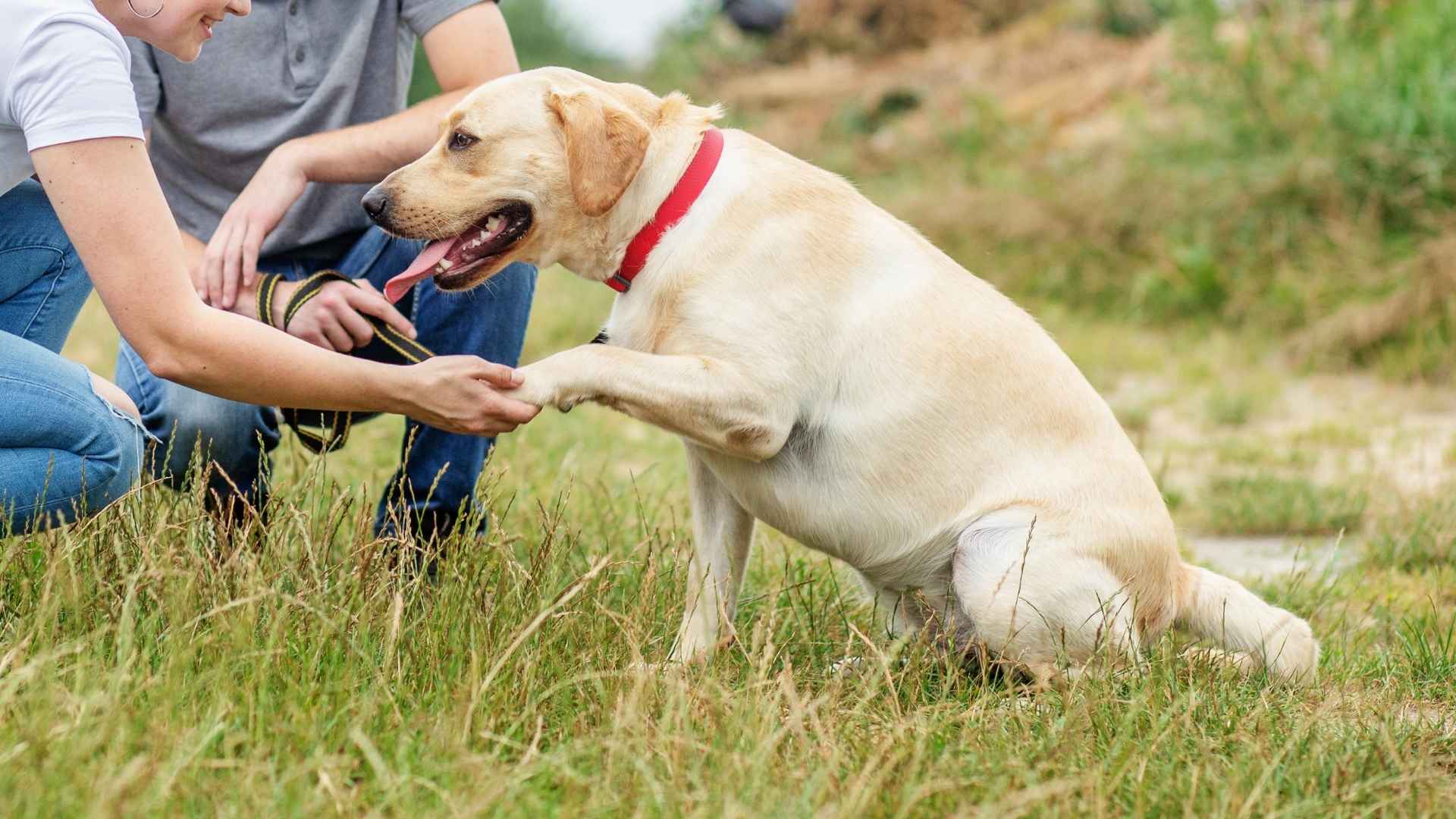Dogs have long been cherished companions, but their role extends beyond companionship. They are increasingly recognized for their therapeutic benefits, especially in supporting mental health.
According to NIH, dogs are the most common therapy animals due to their natural affinity for humans, offering comfort and support in various settings.
Therapy dogs are particularly beneficial for individuals with mental health disorders, providing emotional support that can alleviate symptoms of anxiety, depression, and stress. Their presence can create a calming environment, making them invaluable in therapy sessions and daily life.
The following breeds are not only high in trainability but also excel in providing emotional support, making them ideal companions for those seeking therapeutic benefits.
Best Therapy Dog Breeds That Are Easy to Train
When it comes to therapy dog work, some breeds stand out for their emotional awareness and willingness to help.
While purebreds often get the spotlight, even a well-socialized mixed breed can be a great therapy dog. It all depends on the dog’s nature, sensitivity, and ability to connect with people.
For dog owners looking to find that perfect emotional companion, this list highlights breeds that shine in offering calm, comfort, and healing, one paw at a time.
1. Golden Retriever
Golden Retrievers are America’s beloved family dogs—gentle, dependable, and naturally comforting. Their sweet nature makes them perfect emotional support animals.
Did you know a Golden retriever named ‘Beacon’ won dog gold for being the best therapy pup, according to the American Kennel Club? It’s not surprising at all, well deserved!
Whether snuggling with kids or visiting therapy patients, Goldens bring peace and joy effortlessly. It’s no surprise they’re among the most popular dog breeds for therapy and companionship.
What Makes It a Good Therapy Dog?
Golden Retrievers shine in animal-assisted therapy roles because of their loving nature and calm presence. They’re natural family pets, always eager to connect with people.
Their trusting eyes and warm spirit make them perfect for children and seniors alike. With the right therapy dog certification, they thrive in schools, hospitals, and homes. As service dogs, they’ve been helping people for decades.
Trainability
Goldens are eager to learn and love pleasing their humans. Their patient personality makes them easy to guide through therapy training. They’re gentle, social, and responsive.
2. Poodle
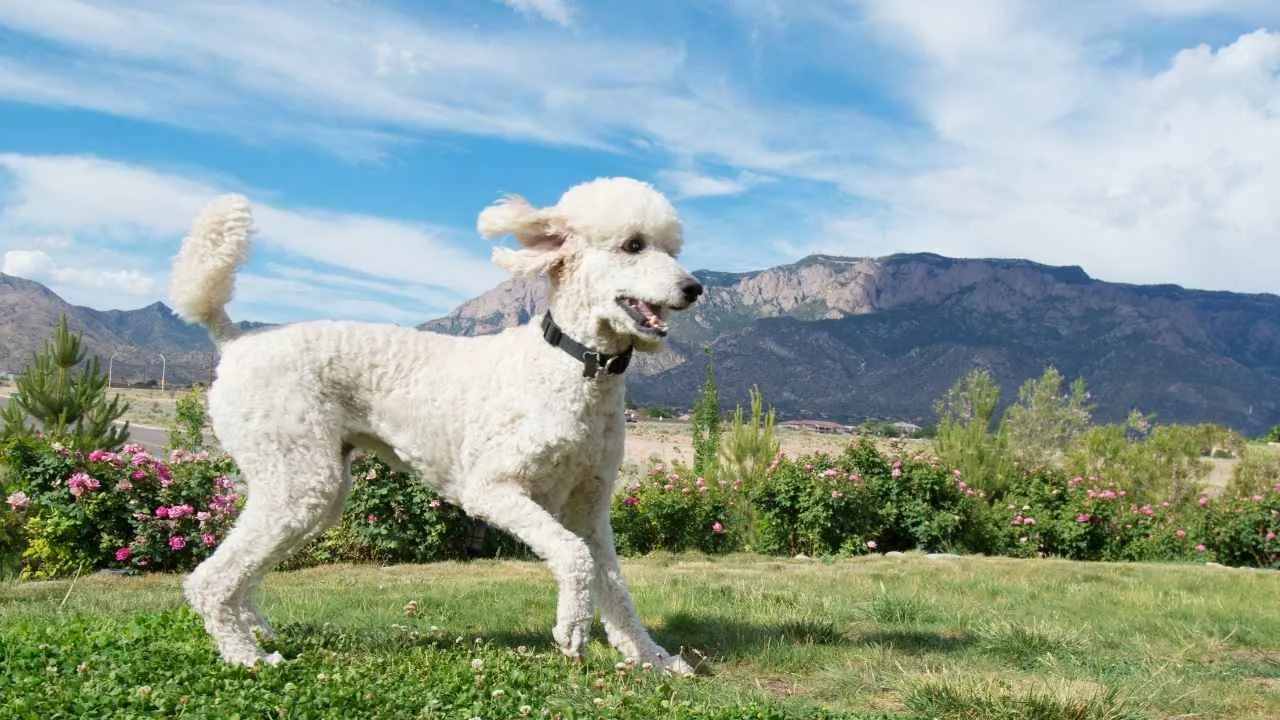
Poodles are one of the smartest dog breeds, making them ideal for therapy work. Whether standard or toy size, they’re quick learners with big hearts.
Their intelligence, calm temperament, and hypoallergenic coats make them stand out in emotional support roles. A brilliant and loving partner in any therapy setting.
What Makes It a Good Therapy Dog?
Standard Poodles, in particular, excel in therapy and service dog roles. Their ability to perform deep pressure therapy makes them soothing companions in nursing homes and hospitals.
Whether a toy breed or standard size, Poodles are deeply intuitive. They form strong bonds and love being companion animals. Their hypoallergenic coat is also a plus for those with allergies.
Trainability
Poodles love mental challenges. Their intelligence means they quickly become a therapy dog with consistent, positive training. They’re focused, alert, and always ready to work.
3. Labrador Retriever
Labrador retrievers are joyful, loyal, and effortless to train—everything you want in a therapy dog. With their bright eyes and friendly nature, they offer comfort wherever they go.
Whether in nursing homes or with families, Labrador retrievers bring happiness, love, and gentle strength. Truly an all-American favorite in every way.
What Makes It a Good Therapy Dog?
Labrador retrievers are often seen in nursing homes and hospitals for a reason. Their personality traits—friendly, calm, and intuitive—make them excellent therapy and guide dogs, according to PDSA. They respond well to human attention and thrive on making people smile.
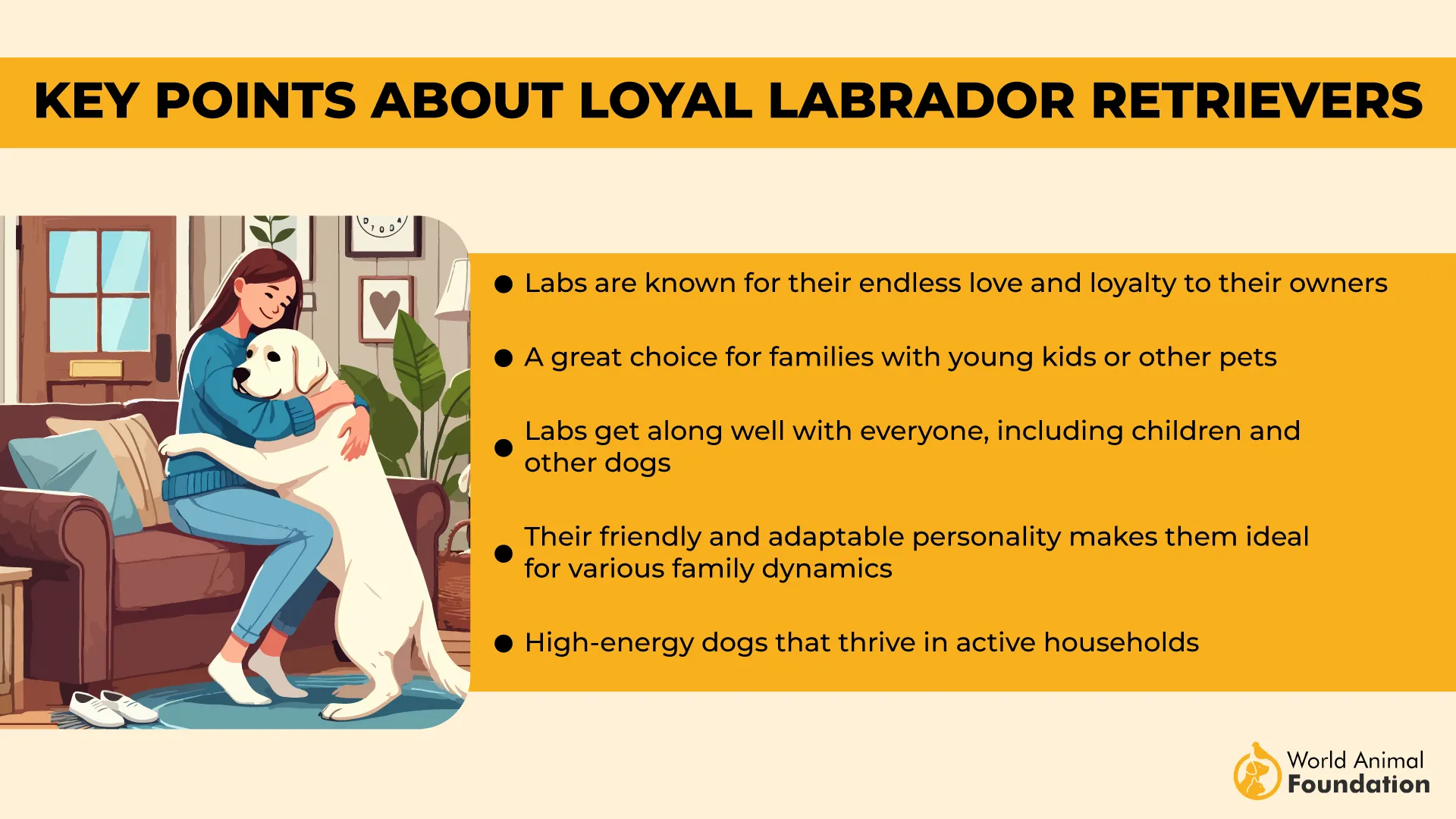
Emotional therapy is a natural skill for them, and their soft eyes bring comfort instantly. Labs are well-suited for homes and therapy environments alike.
Trainability
Labradors are eager to please and quick learners. These dogs are trained easily thanks to their gentle nature and loyalty. They’re attentive and joyful students.
4. Newfoundland
Newfoundlands are giants with webbed feet and hearts full of love. According to AKC, originally bred for water rescues, they now rescue emotions with their soft fur and calm demeanor.
Their sensitive, cuddly nature makes them ideal therapy companions, offering warmth and support to anyone needing comfort and quiet companionship.
What Makes It a Good Therapy Dog?
Known as gentle giants, Newfoundlands bring an unmatched calmness to therapy spaces. Their sensitive nature and medical alert potential make them ideal for emotional support and therapy roles.
People feel safe with them. Their soft fur and quiet presence are incredibly grounding, especially in stressful situations. Newfies adore being close and make wonderful therapy dogs for both children and adults.
Trainability
While big, Newfoundlands are soft-hearted and eager to connect. They respond well to positive reinforcement and learn quickly when treated with patience and affection.
5. Bichon Frise

With its adorable round face and cloud-like fur, the Bichon Frise is impossible not to smile at. But behind that cuteness is a heart full of love and emotional awareness.
These small dogs are known for their charm, warmth, and ability to brighten any room they enter.
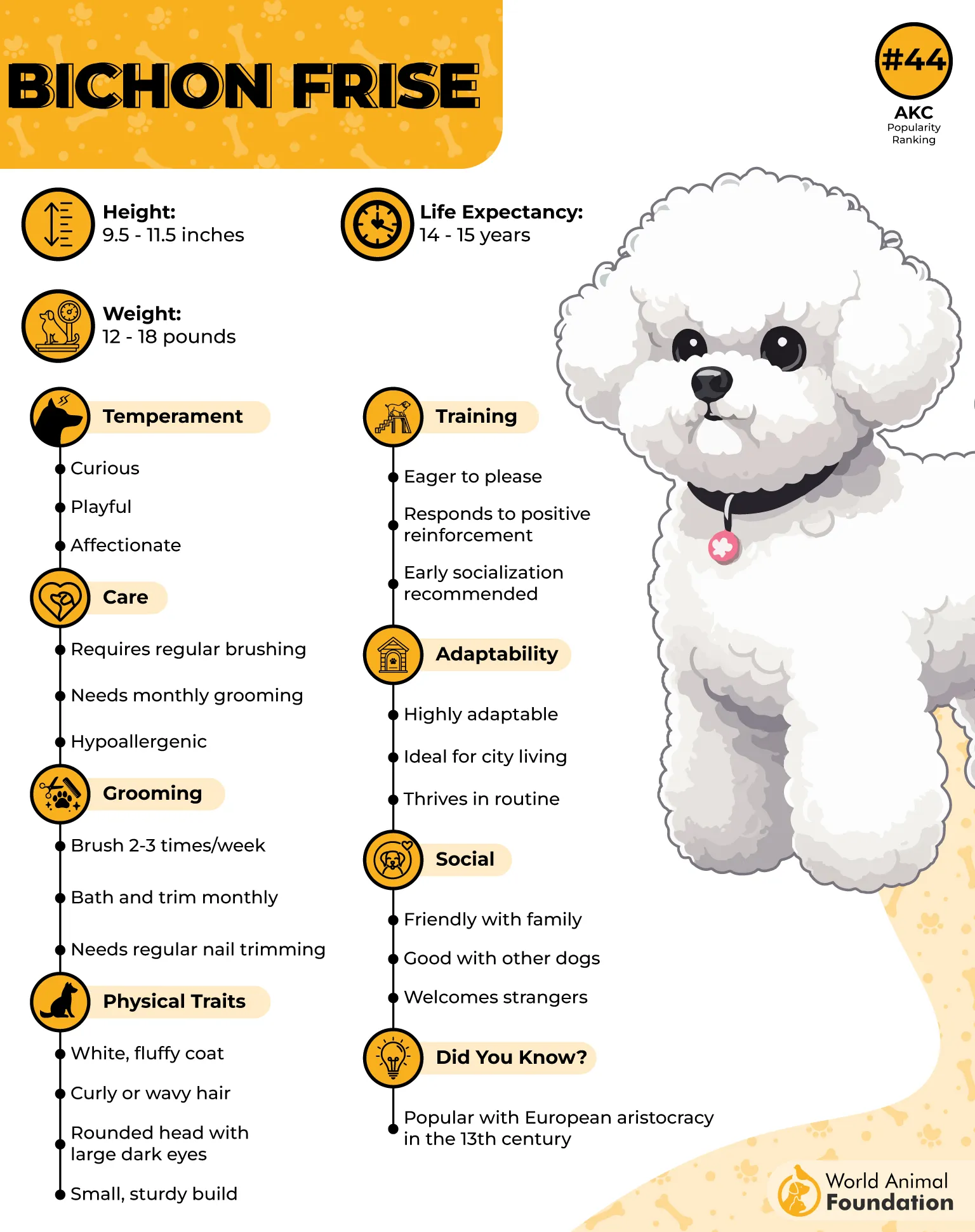
What Makes It a Good Therapy Dog?
Bichons make excellent therapy dogs thanks to their intuitive grasp of human emotions and their eager-to-please personality. They’re often used in animal-assisted activity programs and can even be trained as medical alert dogs.
Their small size and gentle approach make them ideal for children, elderly patients, or hospital visits. They’re truly little bundles of comfort and joy.
Trainability
Training a Bichon is a fun and rewarding experience. They respond well to affection and soft training methods. Their eagerness to please makes them quick learners, especially in therapy dog routines.
6. Pug

Few dogs wear as much personality on their face as the Pug. With their wrinkly expressions and soulful eyes, Pugs have long been favorites in therapy work.
They’re great for those looking for low-maintenance, lovable companions who offer real emotional presence.
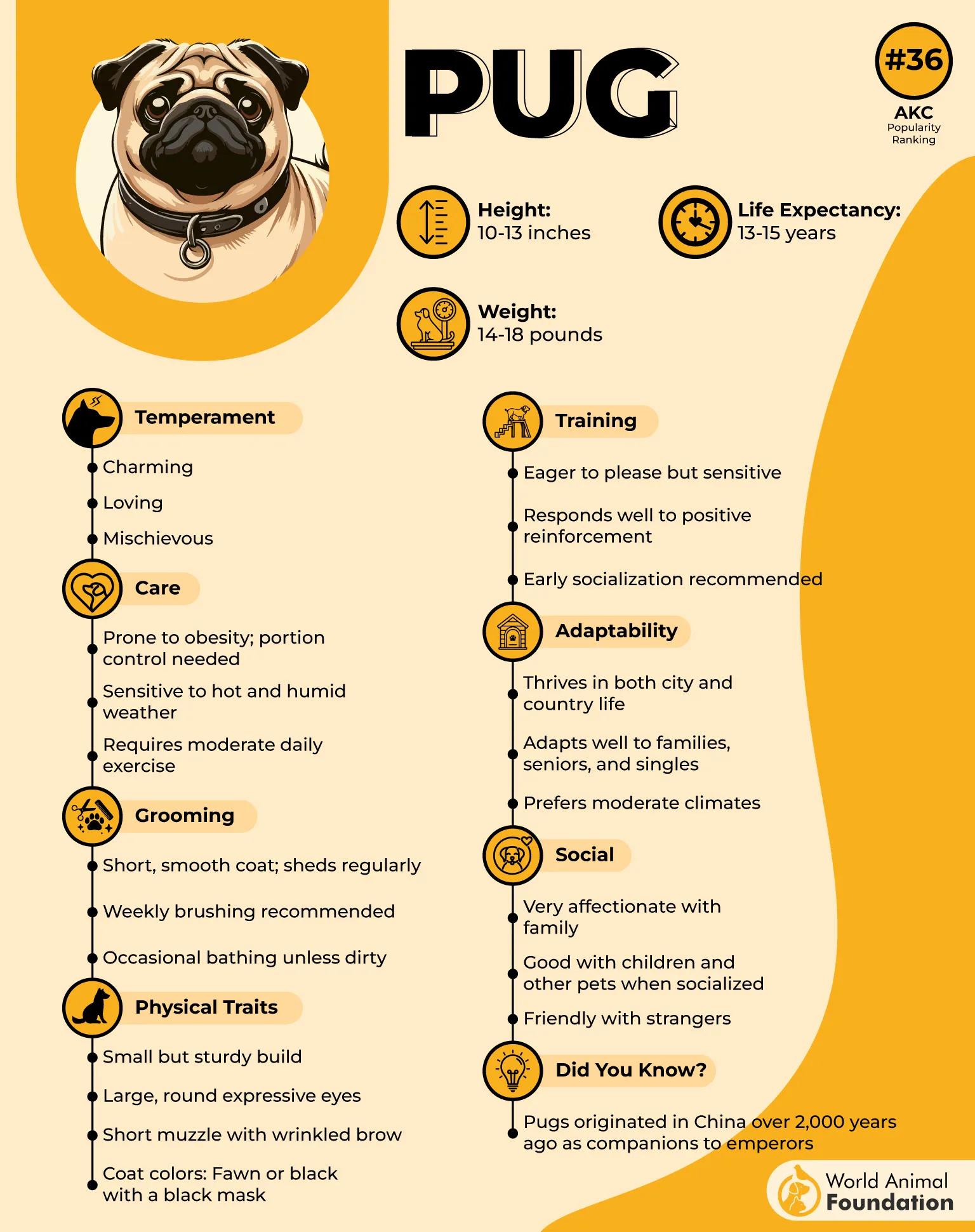
What Makes It a Good Therapy Dog?
Pugs are one of those certain breeds that simply get people. With a gentle temperament and naturally sensitive vibe, they fit easily into pet therapy settings.
Most therapy dogs need to be calm and friendly with other dogs, and Pugs excel there. Their short stature, quiet nature, and love for snuggles make them ideal emotional sidekicks.
Trainability
Though sometimes stubborn, Pugs are very affectionate and learn best with positive, playful training. They’re not built for intense service dog work but thrive in emotional support roles and light routines.
7. Border Collie
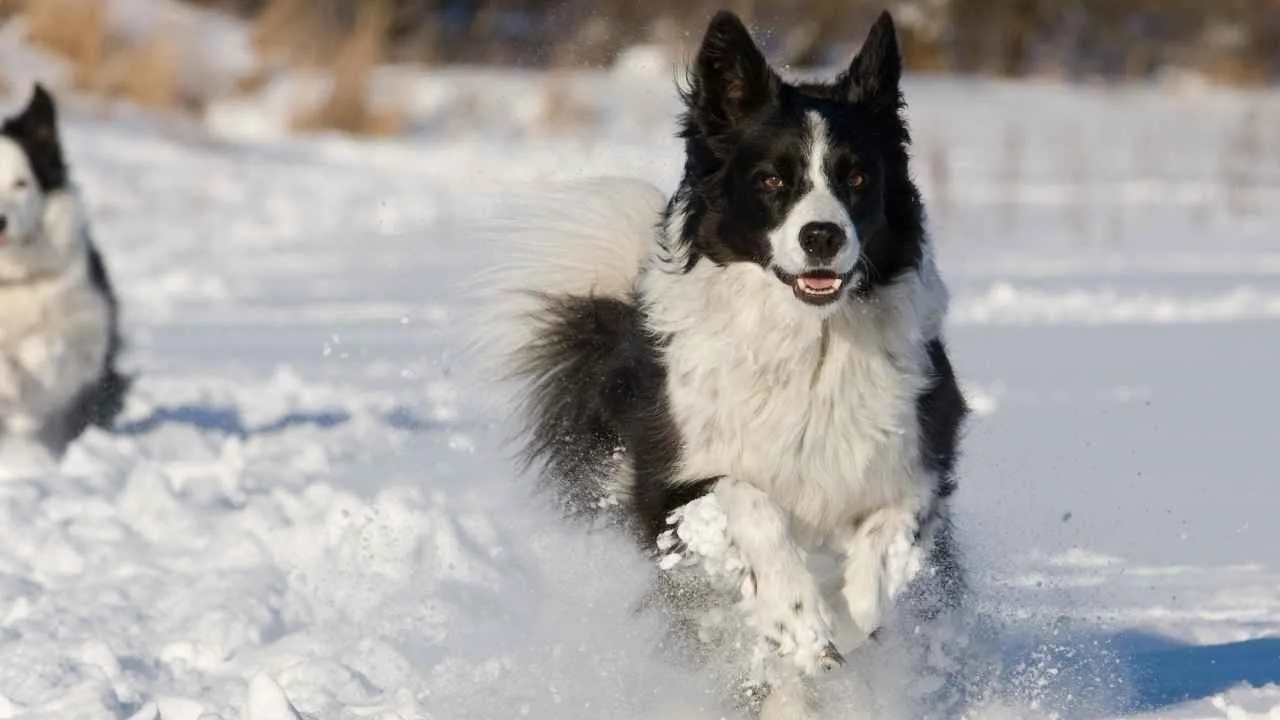
Often named the most intelligent dog breed, according to WebMD, the Border Collie is a genius in fur. Originally a working dog, it’s now a favorite for advanced service roles. Their energy and brains make them incredible partners for those needing consistent support.
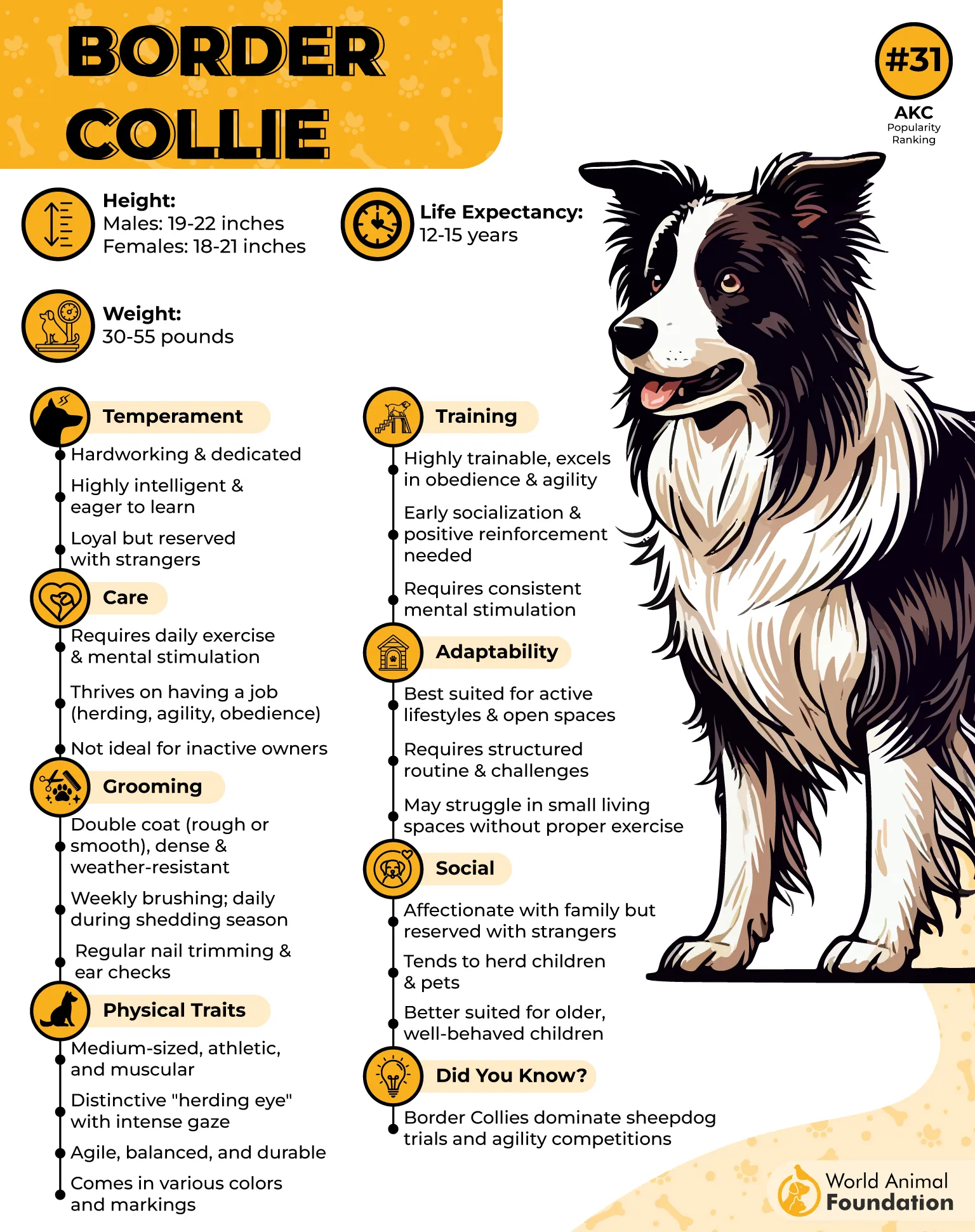
What Makes It a Good Therapy Dog?
The Border Collie might be a larger dog, but it’s one of the best breeds for emotional support and mental disabilities.
Known for being incredibly smart, they’re able to perform tasks and routines with incredible precision. Their focus and sensitivity help them succeed in service work, especially for people who need both structure and affection.
Trainability
These dogs thrive on mental stimulation and learn fast. Their working background makes them natural students. With proper guidance, they can master complex therapy routines and emotional cues with ease.
Conclusion
Therapy dogs come in all shapes and sizes, but the best ones share a few common traits—they’re emotionally tuned in, gentle, and eager to connect.
Sensitive dogs with calm temperaments are especially well suited for this role, offering stability and comfort in therapy sessions and daily life. Small breeds can be just as effective as larger ones, making them perfect for children, seniors, or apartment living.
Whether you’re seeking emotional support dogs for personal care or great therapy dogs for structured programs, there’s a perfect match out there for every need. For dog lovers, these breeds aren’t just pets—they’re healing companions, emotional anchors, and loving hearts with fur.


